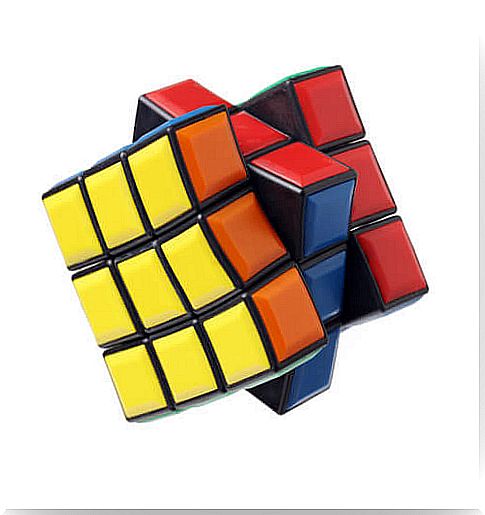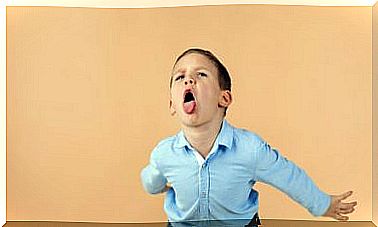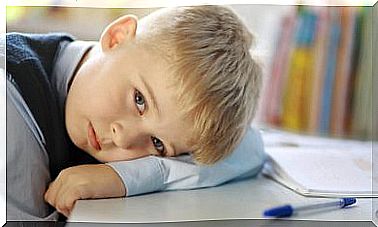My Child Is Distracted In Class: What Should I Do?
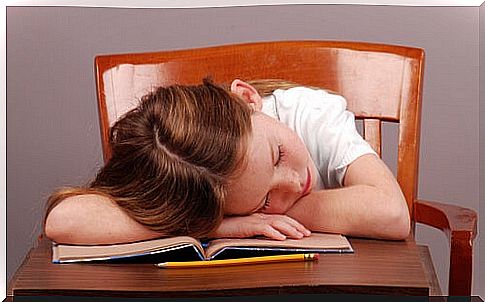
“My son is distracted in class”; This exclamation, repeated frequently by many mothers, is one of the most recurrent concerns associated with school-age children. The lack of attention in children can alter the level of learning and grades of our little ones.
There are many publications that try to address this issue from various points of view. Next, we will provide an approach to the difference between loss of concentration and ADD attention deficit, as well as recommendations and exercises to do at school and at home.
My child is distracted in class: what should I do?
Difference between loss of concentration and attention deficit
Before addressing this issue, it is important to make a distinction between a child who loses attention in class due to external stimuli and those who actually suffer from the condition called attention deficit, called ADD for its acronym.
The first condition is more common than parents realize and never usually persists for long. Generally, this is temporary and, given the necessary stimuli, they immediately regain their ability to concentrate.
Only 5% of the child population is found in the second group. The attention deficit is permanent, but in the same way the children that belong to this population need even more concentration exercises than the first ones.
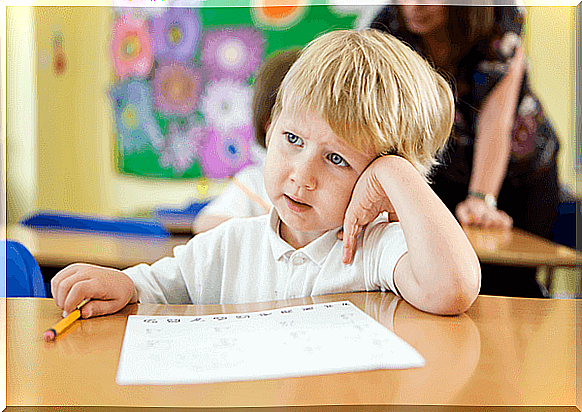
Recommendations and exercises to regain attention
As we explained in the previous section, concentration exercises are beneficial for children with temporary loss of attention due to external stimuli and for children suffering from ADD. For both, it is important to design strategies that are developed in the classroom and then reinforced at home.
Next, we will explain the actions that can be implemented in both areas:
Plan for college
It is important that you talk with his teacher so that together you can plan a strategy for the distracted child. In this sense, the most recurrent actions that current teaching strategies include to attract the attention of the infant are:
- Place the child in the first rows in front of the teacher’s desk.
- Keep him away from the most talkative children, but also allow him to maintain his interaction with other classmates.
- Talking constantly looking into his eyes, this will make the child feel the need to be alert.
- Ask surprise questions frequently.
However, not all of this plan should take place at school. At home, certain actions should also be taken to reinforce the child’s ability to be attentive.
Plan for the house
There are multiple options for reinforcing children’s attention at home. We will start first with the actions related to studying or reviewing their school activities.
How to do homework?
It is essential that children with attention problems have their own study space to carry out their tasks. It must have its own desk or table and an ergonomic chair, it must have good lighting and it must not have toys or distracting elements around.
Also, you should turn off the TV and move it away from your tablet or cell phone while you do your homework. Don’t stay with him watching him go through his review; Rather, he walks around his room, comes out, and walks past him again. This action is analogous to the behavior of the teacher in the classroom and thus she will feel your support in carrying out her homework.
Also, instruct her to always start her homework with the ones that are most difficult for her. That way, you won’t get frustrated or abandon your obligations.
Always congratulate him when he finishes his homework. Thus, you will feel encouraged to continue studying and doing your homework; You will also be proud of your effort.

Extracurricular activities
- Enroll them in music classes, for example piano or violin. Motor activities stimulate patience and concentration.
- Have your child draw mandalas or take him to painting classes.
- Gift him a puzzle and help him assemble it.
- Play chess with your child.
- Put him to cut out figures; this action also stimulates your attention.
With these simple actions, your child’s attention will be greatly increased. Remember that if you have doubts regarding attention deficit, you can give your child a test to rule out this pathology with your pediatrician, a psychologist or a neurologist.
